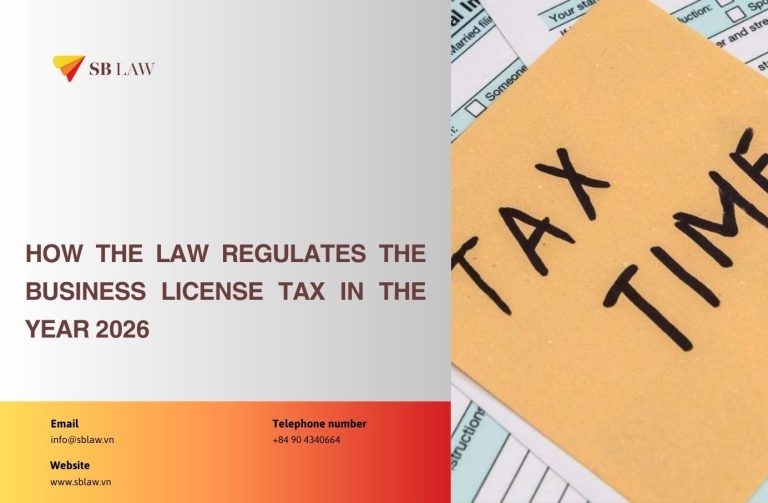Question:
Our company is a company registered in the United Kingdom, currently with the intention of establishing a Vietnamese IT team to develop software for the parent company in the UK. The main purpose of this establishment is to legalize the hiring and use of labor in Vietnam, with the current workforce being seven individuals (including one Australian national, who represents the company in Vietnam), with plans to expand the workforce to 30 people. We wish to receive advice on three options:
- Option 1: Establishing a Representative Office in Vietnam.
- Option 2: Establishing a Branh in Vietnam.
- Option 3: Establishing a Company with 100% Foreign Ownership in Vietnam.
Answer:
The business sector involved in the development of software products (IT) is classified as computer services and related services under Vietnam's commitments on trade in services upon joining the WTO.
-
Establishing a Representative Office in Vietnam
According to claus 2 Article 44, Law on Enterprises 2020: "A representative office is a dependent unit of an enterprise, tasked with representing, on behalf of the enterprise, its interests and protecting those interests. The representative office does not conduct the business functions of the enterprise.”
According to clause 6 Article 3 of the 2005 Commercial Law stipulates: "The representative office of a foreign trader in Vietnam is a dependent unit of the foreign trader, established in accordance with the laws of Vietnam to study the market and carry out some trade promotion activities permitted by Vietnamese law."
According to clause 3 Article 17 of the 2005 Commercial Law, regarding the rights of the representative office: "Recruitment of labor shall be Vietnamese citizens or foreigners to work at the representative office in accordance with the laws of Vietnam."
Requirements for establishing a representative office: (as stipulated in Article 7 of Decree No. 07/2016/ND-CP)
- The foreign trader must have been operating for at least 01 year since the date of establishment or registration;
- The activities of the representative office must comply with Vietnam's commitments in international agreements to which Vietnam is a member; (including computer services and related services).
- In cases where the activities of the representative office do not align with Vietnam's commitments, or the foreign trader is not from a country or territory participating in international agreements to which Vietnam is a member, the establishment of the representative office must be approved by the Minister or Head of the equivalent management agency.
Therefore, foreign traders are allowed to establish representative offices in Vietnam. However, these representative offices must meet specific conditions for establishment and are not permitted to engage in business activities. Additionally, the representative offices can recruit labor, and the recruited individuals must be Vietnamese citizens.
- Establishment of a Branch in Vietnam
In accordance with clause 1 Article 44, Law on Enterprises 2020: "An Branch is a dependent unit of a foreign trader, established and operating in trade in Vietnam in accordance with the laws of Vietnam or international treaties to which the Socialist Republic of Vietnam is a member."
As per clause 7 Article 3 of the 2005 Commercial Law: "An Branch of a foreign trader in Vietnam is a dependent unit of the foreign trader, established and operating in trade in Vietnam in accordance with the laws of Vietnam or international treaties to which the Socialist Republic of Vietnam is a member”
According to clause 2 Article 19 of the 2005 Commercial Law, regarding the rights of the branch: "Recruitment of labor shall be Vietnamese citizens or foreigners to work at the branch in accordance with the laws of Vietnam.”
Conditions for establishing an branch: (as stipulated in Article 8 of Decree No. 07/2016/ND-CP)
- The foreign trader must have been operating for at least 05 years, counted from the date of establishment or registration;
- The activities of the branch must align with Vietnam's commitments to open the market in international agreements to which Vietnam is a member, and be suitable for the business sector of the foreign trader; (including computer services and related services).
- In cases where the activities of the branch do not align with Vietnam's commitments, or the foreign trader is not from a country or territory participating in international agreements to which Vietnam is a member, the establishment of the branch must be approved by the Minister of the specialized management agency.
Therefore, foreign traders are permitted to establish branch in Vietnam. However, branch must meet specific conditions for establishment and can engage in profit-generating activities. They may also maintain independent accounting records. Additionally, branch can recruit labor, and the recruited individuals can be Vietnamese citizens.
-
Establishing of a New Company with 100% Foreign Ownership in Vietnam.
Vietnam and the United Kingdom are both members of the WTO and the Comprehensive and Progressive Agreement for Trans-Pacific Partnership (CPTPP). Therefore, when establishing a company with 100% foreign capital, consideration will be given to both of these agreements:
Firstly, under the WTO's Software Development Services classification, falling under computer services and related services (CPC 841-845, CPC 849)
- Capital requirements: No restrictions; a company with 100% foreign investment can be established.
- Personnel requirements: At least 20% of the total number of managers, directors, executives, must be Vietnamese citizens. However, each foreign enterprise is allowed to have a minimum of 3 managers, directors, and executives who are not Vietnamese citizens.
Secondly, under the CPTPP, Software Development Services, classified under computer services and related services (CPC 841-845, CPC 849) in Appendix 1, Vietnam's commitments:
- Capital requirements: No restrictions; a company with 100% foreign investment can be established.
- Personnel requirements: No restrictions.
From the above analysis, your company is allowed to establish one of three forms of commercial presence: Representative Office, Branch and Foreign Investment Company, and the three options all have the right to recruit labor. However, there are differences in terms of conditions, establishment procedures, and operational rights among these forms. In general, the main difference between a branch and a representative office revolves around the purpose of the foreign trader. An branch can engage in profit-generating activities, have independent accounting, while a representative office cannot engage in business activities. Therefore, if the company aims to expand its scope of activities, boost profitability, and access the market, establishing a branch is recommended. However, if the company simply wants a place for product display, research, market access, customer care, etc., or just to support the business activities of the company, establishing a representative office is more suitable. Additionally, establishing a company with foreign investment will be more complex and involve more prolonged procedures compared to establishing a representative office/branch, as it must ensure compliance with regulations related to market access and conditions for implementing investment registration procedures in Vietnam.
For the purpose of legalizing the hiring and use of labor in Vietnam, in our opinion, establishing a Representative Office in Vietnam is the most suitable choice as it helps the company achieve the goal of hiring labor, and, it is the least complex form of establishment.




